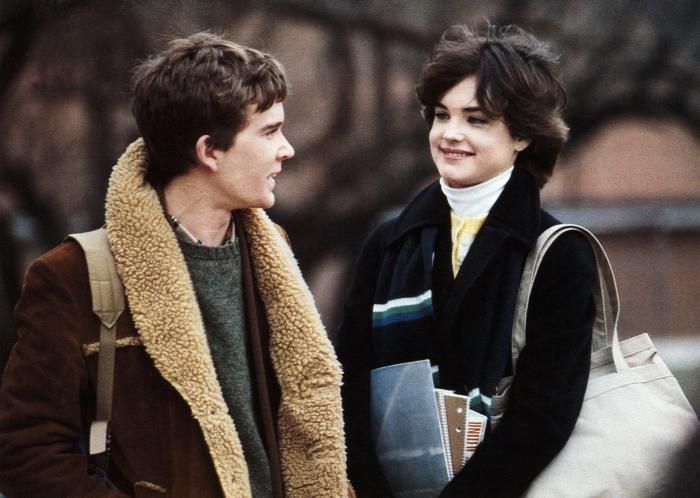
fciwomenswrestling.com femcompetitor.com, fcielitecompetitor.com pexels.com- Andrea-Piacquadio.
April 27, 2020,
A busy schedule can be a soothing distraction from issues that we do not want to face or address.
Once that busy schedule comes to an end, like during a global pandemic, and we are sheltering inside of our residences, then that busy soothing distraction is gone.
Now you have time to think.
To reflect.
To analyze.
To dwell in and on the past.
Is there something that you feel you need to forgive yourself for?

Understandably we are not speaking of participation in the commission of a crime.
It would be something personal.
There are sources to help during a personal crisis.
The National Suicide Prevention Lifeline (1-800-273-TALK [8255]) is a United States-based suicide prevention network of 161 crisis centers that provides a 24/7, toll-free hotline available to anyone in suicidal crisis or emotional distress.
After dialing 1-800-273-TALK (8255), the caller is routed to their nearest crisis center to receive immediate counseling and local mental health referrals. The Lifeline supports people who call for themselves or someone they care about.
Hopefully your situation is not that severe.
In a true story, a friend in our circle we’ll call Rich, once related a story to us about someone that he met when he was young through a group therapy class.
Rich was a Marketing Specialist for a substance abuse prevention program and did much of the outreach for them and worked with the media setting up interviews for their Executive Director.
One day the Director suggested that Rich attend group therapy sessions so he could get a better feel for the program from the customer’s viewpoint since most of his time was spent on administrative functions.
Rich agreed, of course, and began to show up, listening to the intriguing stories of the clients who attended.
One person stood out.
He was a gregarious young man who was also cracking jokes and seemed to have a lively personality yet he had a severe drinking problem and Rich was extremely puzzled as to why since the young man seemed to have so much going for him.
Then he finally found out why.
One day the young man was driving his motorcycle a little too fast while he had his closest and longtime family friend riding on the back.
He accidentally crashed the bike.
His close friend was not wearing a helmet and died.
That was a horrific story.
Rich now understood why the young man drank so much. Interestingly Rich found that out second hand from a very reliable source. Why second hand?
Because the young man would never discuss it in front of others.
We can turn to film for important lessons on how to forgive yourself. Even when others long have, sometimes the person hardest on ourselves, is oneself.

The Deep End of the Ocean is a 1999 American drama film directed by Ulu Grosbard, and starring Michelle Pfeiffer, Treat Williams, Whoopi Goldberg, Jonathan Jackson and Ryan Merriman. It is an adaptation of the novel of the same name by Jacquelyn Mitchard, a bestseller that was the very first novel selected by Oprah Winfrey to be discussed on Oprah’s Book Club in 1996.
Beth and Pat Cappadora’s 3-year-old son Ben vanishes in a crowded hotel lobby during Beth’s high school reunion. The ensuing frantic search is unsuccessful, and Beth goes through a sustained nervous breakdown. Unable to cope with her devastation, Beth unintentionally neglects her other children, Vincent and Kerry.
Though not a blockbuster hit, this perhaps is one of Michelle Pfeiffer’s best performances.
How can you forgive yourself when your son is in your care and you lose him?
This is a film worth watching while you are staying at home and we sense you will learn something substantial from it.
Then there is this classic.

Ordinary People is a 1980 American drama film that marked the directorial debut of actor Robert Redford. The film stars Donald Sutherland, Mary Tyler Moore, Judd Hirsch, and Timothy Hutton.
The story concerns the disintegration of an upper-middle class family in Lake Forest, Illinois, following the accidental death of one of their two sons and the attempted suicide of the other. The screenplay by Alvin Sargent was based upon the 1976 novel Ordinary People by Judith Guest.
Deservedly so, the film received six Academy Awards nominations and won four: the Academy Award for Best Picture, Best Director for Redford, Adapted Screenplay for Sargent, and Supporting Actor for Hutton.
In addition, it won five Golden Globe Awards: Best Motion Picture – Drama, Best Director (Redford), Best Actress in a Drama (Tyler Moore), Best Supporting Actor (Hutton), and Best Screenplay (Sargent).
It takes a while, but it is well worth the wait, to find out what exactly is eating away at Conrad.
Very important lessons are learned on multiple fronts here in terms of forgiveness and especially in terms of forgiving yourself, which at times seems almost impossible.
An exceptional article by Mr. Matt James Ph.D., with a focus on forgiveness, is found at Psychology Today Magazine. He makes many good points and one addresses what may cause this deep level on holding on to an incident most often so deep in our past.
He asserts that we tend to think of ourselves as a continuum.
A person that begins with our past, moves briefly through our present, and heads toward our future. Letting go of our own past, or the past we have created in our heads, can feel unstable like a boat that has slipped its mooring.
When we try to forgive ourselves, we’re trying to release something that feels like it is part of us.

Now here is what he says specifically, “To release that part of your past that you need to forgive, it’s helpful to remember that we’re all doing the best we can in any moment. If you had known that your action would cause pain to others or yourself, you probably wouldn’t have done it, right? And even if you knew that you were causing damage at the time, you had no idea how much you would regret it in the future.”
How true that is.
In most cases, at the time of our transgression, if we had any idea how much pain it would cause later, we would do anything in our power to prevent it before it occurred.
Like the young man previously discussed, we’re certain he would give anything or do anything to go back in time to prevent his closet friend from being killed.
Two movies like the ones above are a lot to digest in one day.
If you make a decision to watch them, our suggestion would be to do so with the idea that you are sitting in a classroom, like so many are during our pandemic times, and see what you can glean that can be applied to your situation with an eye to forgiveness.
We can only be distracted for so long, thus, now that we may have the time to face our thoughts, this also may be a good time to learn once and for all how to let go of the past, focus on the people you love in the present and forgive yourself so that you can give them your full attention.
During these unprecedented times, they surely need it.

~ ~ ~
OPENING PHOTO fciwomenswrestling.com femcompetitor.com, fcielitecompetitor.com pexels.com- Andrea-Piacquadio.
https://en.wikipedia.org/wiki/National_Suicide_Prevention_Lifeline
https://en.wikipedia.org/wiki/The_Deep_End_of_the_Ocean_(film)
https://en.wikipedia.org/wiki/Ordinary_People
https://fciwomenswrestling.com/



